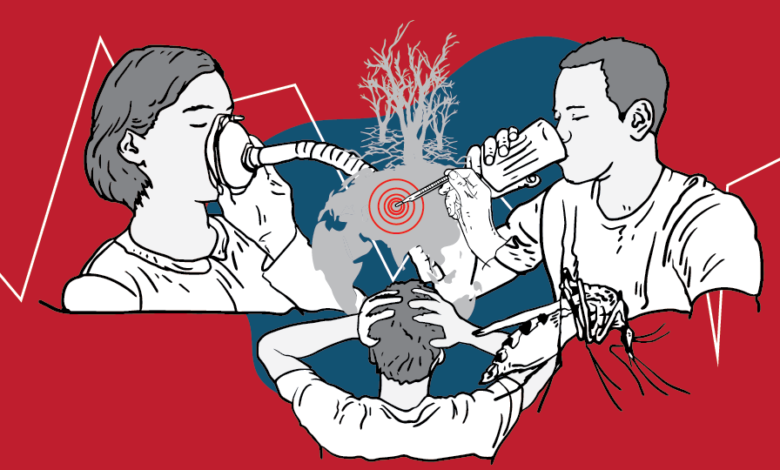How Climate Change Is Impacting Public Health Worldwide

Climate change is no longer just an environmental issue it has become one of the greatest health challenges of our time.
According to Indonesian Pharmacy Expert pafikutaikab.org Rising global temperatures, shifting weather patterns, and extreme climate events are directly affecting the health and safety of millions of people around the world. From spreading infectious diseases to worsening air quality, the link between climate change and public health is becoming increasingly clear.
Heatwaves and Rising Temperatures
One of the most visible effects of climate change is the increase in extreme heat events. Prolonged heatwaves lead to heatstroke, dehydration, and cardiovascular complications, particularly among the elderly, children, and those with preexisting medical conditions. In some regions, rising temperatures also strain healthcare systems as hospitals see a surge in heat-related admissions.
Air Pollution and Respiratory Diseases
As temperatures rise, so does air pollution. Higher levels of ground-level ozone and fine particulate matter worsen respiratory conditions such as asthma, bronchitis, and chronic obstructive pulmonary disease (COPD). Urban areas with heavy traffic and industrial activity are especially vulnerable, creating long-term health risks for their populations.
See also: Online Rooflight Store UK: A Complete Guide to Buying Rooflights for Your Home
Water and Food Security
Climate change affects the safety and availability of clean water and food. Extreme floods can contaminate water sources with harmful bacteria, leading to outbreaks of diarrheal diseases. Meanwhile, prolonged droughts reduce crop yields, increasing malnutrition rates in vulnerable communities. Shifts in agricultural productivity also create food insecurity, which impacts both physical and mental health.
Spread of Infectious Diseases
Warmer climates allow disease-carrying insects, such as mosquitoes and ticks, to expand their habitats. This results in the wider spread of diseases like malaria, dengue fever, chikungunya, and Lyme disease into regions where they were previously uncommon. Public health systems must adapt quickly to track, prevent, and respond to these new outbreaks.
Mental Health Impacts
The psychological effects of climate change are often overlooked. Displacement caused by natural disasters, loss of homes, and uncertainty about the future can lead to anxiety, depression, and post-traumatic stress disorder (PTSD). Communities affected by repeated floods, storms, or wildfires are at particularly high risk.
Global and Local Responses
To address these challenges, governments and health organizations are implementing climate adaptation strategies. These include creating heatwave early warning systems, improving urban air quality, strengthening water and food safety measures, and expanding vaccination and disease surveillance programs. Education and awareness campaigns are also being developed to help communities adapt and build resilience.
The impact of climate change on public health is undeniable. From physical illnesses linked to air and water quality to mental health challenges caused by displacement and uncertainty, the global population is increasingly vulnerable. Addressing these health risks requires urgent collaboration between environmental, health, and policy sectors. By acting today, societies can reduce the burden of climate change on health and build a safer future for generations to come.




